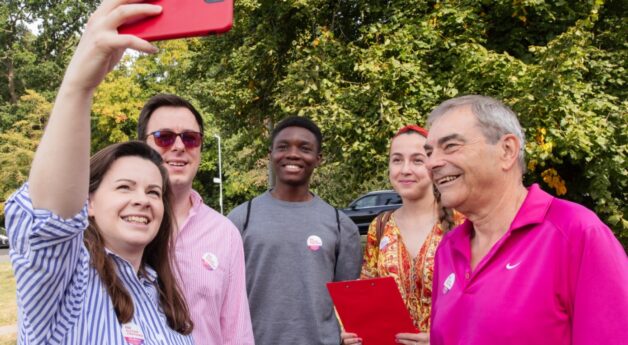Labour to unveil “real world” primary maths teaching to encourage stronger lifelong numeracy
Labour’s Shadow Education Secretary Bridget Phillipson will today unveil a landmark new plan to encourage stronger lifelong numeracy by boosting early intervention and “real world” maths teaching at primary school and a new expert-led review to as part of its plan to drive “high and rising standards in education”.
Phillipson will set out Labour’s plan, which will set children up with basic, practical maths skills to help them achieve at secondary school, at work and throughout life to the party’s conference on Wednesday.
Labour’s maths plan will centre on upskilling primary school teachers who are not maths teachers with the right skills and knowledge to deliver high class maths teaching through the Teacher Training Entitlement, paid for through Labour’s plans to end private schools’ tax breaks.
Labour said it would also task its Curriculum Review with bringing maths to life and directing teachers to show children how numeracy is used in the world around them, such as through household budgeting, currency exchange rates when going on holiday, sports league tables and cookery recipes.
The party said this would include bringing elements of financial literacy into maths teaching, such as using the concept of Individual Savings Accounts to teach about percentages.
Labour’s focus will be on driving improvements at primary level, so they will reform Rishi Sunak’s Maths to 18 working group, so it focuses on primary maths as a first priority and investigates the maths equivalent to phonics.
Labour will also work with nurseries to develop trained ‘Maths Champions’ who can support early learning in childcare settings, ensuring children are set up for school. Independent evaluations show ‘Maths Champions’ can boost learning with three months’ extra progress.
The party said its plan would aim to tackle the growing gaps in early maths attainment that lead to falling engagement and to children falling further behind as they grow up. The party cited evidence showing that that one in four children was already behind expected levels by age five.
Labour pointed to the achievements of the work started by the last Labour government on phonics, laying the basis for a policy which has improved the reading ability of children throughout their time at school, as a template for its plans for primary maths.
Phillipson’s intervention would also seek to target deep-rooted problems with childhood numeracy that persist into adulthood, such as the inability to analyse basic graphs and calculate the value of supermarket offers.
An OECD estimate from 2016 found that nine million working-age adults in England have low basic literacy or numeracy skills with five million having low skills in both areas, while the lack of basic numeracy skills costs the economy £25bn a year.
Bridget Phillipson MP, Labour’s Shadow Education Secretary, is expected to say:
“In every part of our system, in every year of children’s lives, in every corner of our country, we will be the party of high and rising standards.
“Maths is the language of the universe, the underpinning of our collective understanding. It cannot be left till the last years of school.
“It’s why I’m proud to tell you today, that we’ll tackle our chronic cultural problem with maths, by making sure it’s better taught at six, never mind sixteen.
“I am determined that Labour will bring maths to life for the next generation. I want the numeracy all our young people need – for life and for work, to earn and to spend, to understand and to challenge. I want that to be part of their learning right from the start.
Ends
Volunteering with Labour
Help us win
Be part of the team that delivers Labour victories.
